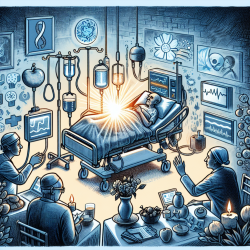Transforming Post-Discharge Stroke Rehabilitation: Key Insights from a Groundbreaking Study
Stroke rehabilitation is a critical component of recovery, especially after discharge from the hospital. The study titled Exemplary post-discharge stroke rehabilitation programs: A multiple case study provides valuable insights into what makes post-discharge stroke rehabilitation exemplary. This blog aims to highlight key findings from this study to help practitioners enhance their rehabilitation programs and encourage further research in this vital area.
Essential Components of Exemplary Care
The study identifies three core components that characterize exemplary post-discharge stroke rehabilitation programs:
- Stroke and Stroke Rehabilitation Knowledge: Practitioners must possess a deep understanding of stroke-related impairments and effective rehabilitation techniques. This knowledge should be shared with patients in a way that is easily understandable, empowering them to actively participate in their recovery.
- Relationship Built Through Respectful Personalized Care: Building a strong, respectful relationship with patients is crucial. This involves personalized care that considers the patient's goals, emotions, and unique circumstances. Such relationships foster trust and encourage patient engagement.
- Commitment to High-Quality, Person-Centered Care: A dedicated focus on providing high-quality, person-centered care is essential. This involves continuous improvement, effective communication among team members, and administrative support to sustain exemplary care practices.
Practical Applications for Practitioners
For practitioners looking to improve their post-discharge stroke rehabilitation programs, the study offers several practical applications:
- Enhance Knowledge and Skills: Regular training and professional development opportunities should be provided to ensure practitioners are up-to-date with the latest stroke rehabilitation techniques and best practices.
- Foster Strong Patient Relationships: Encourage open communication and actively listen to patients' needs and concerns. Tailor rehabilitation plans to align with individual patient goals and life circumstances.
- Leverage Team Collaboration: Promote a collaborative environment where team members can share insights and strategies. Regular meetings and communication channels can help maintain a cohesive team approach to patient care.
- Seek Administrative Support: Engage with administrators to secure the necessary resources and support for implementing and maintaining high-quality, person-centered care.
Encouraging Further Research
While this study provides valuable insights, further research is needed to explore additional factors that contribute to exemplary post-discharge stroke rehabilitation. Practitioners are encouraged to engage in research activities, share their findings, and collaborate with other professionals to advance the field.
To read the original research paper, please follow this link: Exemplary post-discharge stroke rehabilitation programs: A multiple case study.










